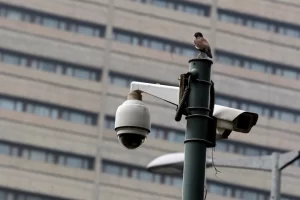Facial recognition taken to court in India’s surveillance hotspot
Lawsuit challenges facial recognition as unconstitutional in Telangana, the state using the most facial recognition systems
https://www.aljazeera.com/news/2022/1/20/india-surveillance-hotspot-telangana-facial-recognition-court-lawsuit-privacy

It was lockdown in the Indian city of Hyderabad when activist S Q Masood was stopped on the street by police who asked him to remove his face mask and then took his picture, giving no reason and ignoring his objections.
Worried about how the photographs would be used, Masood sent a legal notice to the city’s police chief. But after receiving no response, he filed suit last month over Telangana state’s use of facial recognition systems – the first such case in India.
“Being Muslim and having worked with minority groups that are frequently targeted by the police, I’m concerned that my photo could be matched wrongly and that I could be harassed,” Masood, 38, told the Thomson Reuters Foundation.
“It is also about my right to privacy, and my right to know why my photograph was taken, what it will be used for, who can access it, and how it’s protected. Everyone has a right to know this information,” he said.
Masood’s petition in the southern state is seen as a test case as facial recognition systems are deployed nationwide, with digital rights activists saying they infringe on privacy and other basic rights.
Facial recognition technology, which is increasingly used for everything from unlocking mobile phones to checking in at airports, uses artificial intelligence (AI) to match live images of a person against a database of images.
The Indian government, which is rolling out an automated facial recognition system nationwide – among the world’s largest – has said it is needed to bolster security in a severely under-policed country, to prevent crime and find missing children.
But there is little evidence that the technology reduces crime, critics say.
It also often fails to identify women and darker-skinned persons accurately, and its use is problematic in the absence of a data protection law in India, digital rights activists say




